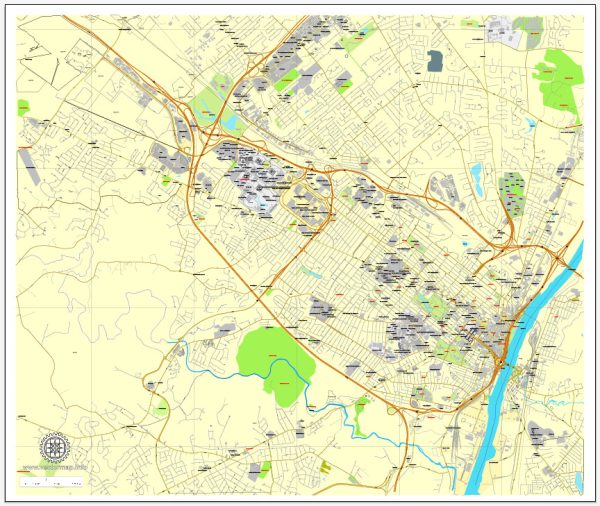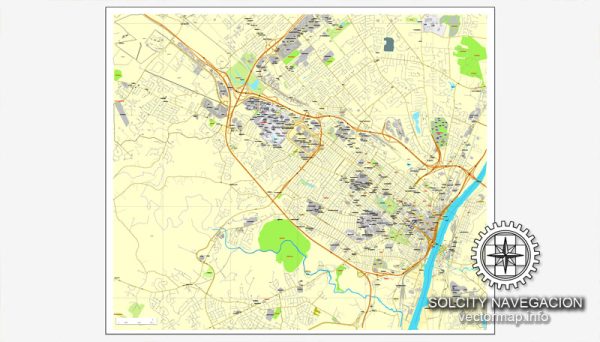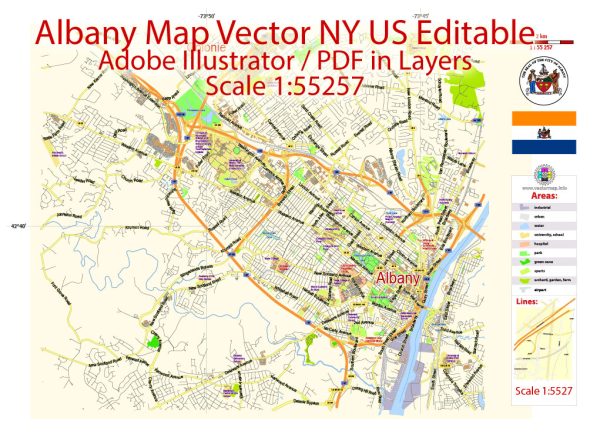Albany, New York, has a rich and diverse history that spans centuries and is closely intertwined with the broader history of the United States. Here’s a brief description of Albany’s history in various periods:
- Early Settlement: Albany’s history can be traced back to its founding as Fort Orange in 1624 by the Dutch West India Company. It was a fur trading post along the Hudson River and part of the Dutch colony of New Netherland. The Dutch influence is still evident in the city’s architecture and street names.
- English Colonization: In 1664, the English captured New Netherland, including Albany, and renamed the city in honor of the Duke of Albany, who would become King James II of England. Albany continued to thrive as a trading and transportation hub during this period.
- American Revolution: Albany played a significant role during the American Revolution. It was strategically located between New York City and Canada, and its position on the Hudson River made it a crucial transportation link. The city was a center for patriot activities and the site of important events, such as the Albany Congress of 1754 and the drafting of the Albany Plan of Union.
- Erie Canal and Industrialization: The construction of the Erie Canal, which connected Albany to Buffalo, was completed in 1825. This canal played a vital role in the westward expansion of the United States and made Albany a major trading and transportation hub. The city experienced significant industrial growth during the 19th century.
- The State Capital: Albany became the capital of New York State in 1797, a role it still holds today. The New York State Capitol, an architectural masterpiece, was completed in the late 19th century and remains a prominent symbol of the city.
- Immigration and Cultural Diversity: Albany has been a destination for immigrants from various parts of the world, leading to a diverse cultural landscape. The city is known for its historic neighborhoods, including the Arbor Hill, South End, and the Pine Hills areas.
- Modern Era: Albany has continued to evolve as a political, educational, and cultural center. It is home to several universities, including the University at Albany and Albany Medical College. The city also hosts a thriving arts and cultural scene, with museums, theaters, and historic sites.
- Government and Politics: Albany is not only the state capital but also a hub for government and politics. The New York State Legislature, state agencies, and various government offices are based in the city, making it a focal point for political activity.
Albany’s history is marked by its role in the development of New York State and the United States, from its colonial origins to its position as a state capital and center of culture and commerce. The city’s historical sites and landmarks provide a glimpse into its rich and diverse past.






 Author: Kirill Shrayber, Ph.D. FRGS
Author: Kirill Shrayber, Ph.D. FRGS